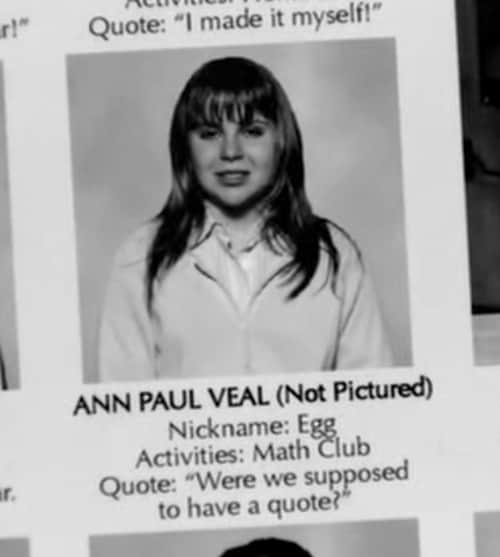
I am part of a generation that has been invited to be unique, to be visionaries, to write our own story and change the world. I need to respectfully decline the offer.
We’ve all heard plenty of speeches about digging deep, mustering up the fortitude within ourselves and striving to be our best with all we’ve got. Almost 34 years into life, I’ve seen all I’ve got. It’s rather disappointing.
Now, I’ve met some of you visionaries—I know you’re out there. Some of you are the real deal. I don’t understand the engine that powers you, the will that makes you good day after day. It is truly impressive, but I cannot relate.
When I try really hard to be good or do something well, I typically end up taking the next day off. Trying is terribly exhausting for many of us.
Maybe it’s partly because we’re spoiled by the things we have and the opportunities we’ve been given and somehow we’ve managed to survive even after the days when we haven’t given 110 percent. Maybe we take what we have for granted. Maybe we’re just too tired.
But the real reason why we cannot change the world by being independently driven and self-sufficient is because Jesus wasn’t.
Of course, Jesus did things that no other human did, which would make anyone stand out. But Jesus didn’t attribute any miracles, brilliant teachings or even His incredibly selfless sacrifice on the cross to His own willpower or inner strength. Jesus Christ, the Savior of humanity, constantly gave credit for His world-changing acts to someone else: His Father.
If anyone in all the annals of history, covering every amazingly heroic anecdote of mankind, had a right to accept glory for their accomplishments, it would be Jesus. But He always deferred attention away from Himself to the Father who sent Him.
As we find on the night of Jesus’ betrayal, when He suggested that His heavenly Father “let this cup pass” from Him (Matthew 26:39), even the Messiah did not always have the intestinal fortitude to do the right thing. But He submitted to the will and the plan of the Father, saying, “Nevertheless, not as I will, but as you will” (Matthew 26:39).
That is a “type” we can rally around. We have an example to pattern our lives after someone who was basically claiming to be an example of someone else. Jesus wasn’t claiming to have been the first or a brilliant visionary. He was merely copying the Father. The concept behind “WWJD” has been rendered kitsch by our generation, but what if there is something deeper behind it we can learn from?
As a matter of fact, some of my best moments have been an imitation of another person. My actions are a copy of someone else’s, the submission to another person’s righteous nature when I don’t have the vision or will of my own. In Hebrews, Jesus is compared to the Father as the “exact imprint of His nature,“ and in the same sentence described as “the radiance of the glory of God” (Hebrews 1:3). This passage does not claim Jesus is unique, but rather radiant with the glory of another—which is perhaps an even higher praise.
Even if it’s not groundbreaking, we can accept the role of “radiant imprint” of something that divinely beautiful. Perhaps we’d influence society most significantly if we could devote as much energy to imprinting the nature of Christ on our hearts as we do trying to make our own mark on the world.
There are plenty of stories in the Bible of imperfect people who made their mark without taking credit, who did not seek to be significant or to create the next big thing. They simply sought God’s favor and glory. They valued faith and obedience over impact or influence.
Interestingly enough, these people seem to have been “world changers” without trying very hard. These men and women of Scripture had faith in someone who happened to be a “world creator.” And, according to Genesis, we are made in the image and the likeness of our Creator, an earthly imitation of our loving Father.
Perhaps we have become impatient, selfish or misinformed in our definition of “world-changer.” Maybe we should stop seeking to be the first or break the mold or change the conversation. Maybe we need to be molded rightly—as imitators of Christ. We will then do amazing things, much like Jesus.
To those of you out there who seem to be unstoppable visionaries—I respect and cheer for you. You will undoubtedly do amazing things.
But if you’re like me, or even if you are set to change the world, perhaps the best we can do is look to our Father, listen to the Holy Spirit of God, learn from the examples of holy living we see in Jesus and others and humbly give credit to what has already been created.
To any of you who want to change the world, do what Jesus did: Make yourself a copy.






















